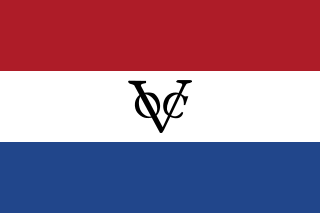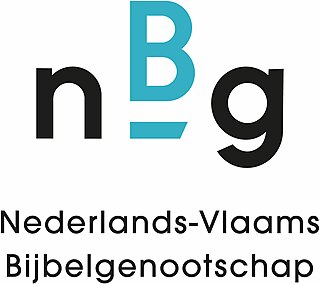
The United East India Company, commonly known as the Dutch East India Company, was a chartered trading company and one of the first joint-stock companies in the world. Established on 20 March 1602 by the States General of the Netherlands amalgamating existing companies, it was granted a 21-year monopoly to carry out trade activities in Asia. Shares in the company could be purchased by any citizen of the United Provinces and subsequently bought and sold in open-air secondary markets. The company possessed quasi-governmental powers, including the ability to wage war, imprison and execute convicts, negotiate treaties, strike its own coins, and establish colonies. Also, because it traded across multiple colonies and countries from both the East and the West, the VOC is sometimes considered to have been the world's first multinational corporation.

Banten is the westernmost province on the island of Java, Indonesia. Its capital city is Serang and its largest city is Tangerang. The province borders West Java and the Special Capital Region of Jakarta on the east, the Java Sea on the north, the Indian Ocean on the south, and the Sunda Strait on the west and shares a maritime border with Lampung to the west. The province covers an area of 9,352.77 km2 (3,611.12 sq mi). It had a population of over 11.9 million in the 2020 census, up from about 10.6 million in 2010. The estimated mid-2023 population was 12.308 million. Formerly part of the province of West Java, Banten was split off to become a province on 17 October 2000.

Wage Rudolf Soepratman was an Indonesian journalist and songwriter who wrote both the lyrics and melody of the national anthem of Indonesia, "Indonesia Raya". He is an Indonesian national hero.
Manado Malay, or simply the Manado language, is a creole language spoken in Manado, the capital of North Sulawesi province in Indonesia, and the surrounding area. The local name of the language is bahasa Manado, and the name Minahasa Malay is also used, after the main ethnic group speaking the language. Since Manado Malay is used primarily for spoken communication, there is no standard orthography.

The Mardijker people refer to an ethnic community in the Dutch East Indies made up of descendants of freed slaves. They could be found at all major trading posts in the East Indies. They were mostly Christian, of various ethnicities from conquered Portuguese and Spanish territories, and some with European ancestry. They spoke Mardijker Creole, a Portuguese-based creole, which has influenced the modern Indonesian language.

The Indonesian Christian Party, better known as Parkindo, was a Christian political party active in Indonesia from 1950 until 1973, when it was merged to make the Indonesian Democratic Party.
Joseph Kam was a Dutch missionary in Indonesia.

Toraja Church is a Protestant Christian denomination in Tana Toraja, Indonesia, of which the majority of the Torajan people are members. This church is a member of the Communion of Churches in Indonesia since 1950. On 1912-1913 the Gerevormerde Missionary Bond-Holland of the Dutch Reformed Church begun working in this part of the country. On 7 November 1913, Reverend A.A. van de Loosdrecht became the first missionary who came to Rantepao. This time became the starting point when the Gospel was grown in the Torajanese's heart. But, Reverend van de Loosdrecht was killed in that place. In 1938 there were 14,000 Christians from 300,000 inhabitants there. Formally, Toraja Church was established on 25 March 1947 in Rantepao. In 1995 the church had 300,000 adherents. In 2012 the church had 400,000 members and 959 congregations. This church is the largest in South Sulawesi, with approximately 80% of the Christian population belong to it. It is a member of the World Communion of Reformed Churches.

Kiai Haji Zainal Mustafa, born Hudaemi, and also known as Zainal Mustofa, was an Indonesian ulama and National Hero of Indonesia. He founded the Pesantren Sukamanah when he was 20. He was awarded the title of National Hero in 1972.

Bible translations into the languages of Indonesia and Malaysia have a lot of common history up until the modern era. Apart from the shared Malay language which historically was the lingua franca of the Malay Archipelago and forms the basis for the national languages of Indonesia and Malaysia today, portions of the Bible have been translated into a variety of indigenous languages in the region.

Sierk Coolsma was a Dutch Protestant missionary who wrote extensively on the Sundanese language. Born in the Netherlands, he became a missionary in his early twenties and arrived in the Dutch East Indies in 1865. First tasked to Cianjur, he studied Sundanese in more detail than his contemporaries, gaining an appreciation for the language. Further missionary activities in Bogor, begun in 1869, were a failure, and in 1873 he was tasked with translating the New Testament into Sundanese. Although the Sundanese people highly valued poetry, he did the translation in prose hoping that it would help readers entertain new ideas.
Antonie Aris van de Loosdrecht was a Dutch missionary. He was sent by Gereformeerde Zendingsbond, a Christian missionary agency which was established in the Netherlands.
Johannes "Hans" Belksma was a Dutch missionary. He was sent by Gereformeerde Zendingsbond, a missionary agency in Utrecht, Netherlands, to work in the Dutch East Indies.

Lauw Giok Lan was a Chinese Indonesian journalist and writer. He was one of the founders of the newspaper Sin Po.
Hendrik van der Veen (1888–1977) was a Dutch missionary worker and linguist who worked in Tana Toraja, Dutch East Indies.

Bible translations into Malay include translations of the whole or parts of the Bible into any of the levels and varieties of the Malay language. Publication of early or partial translations began as early as the seventeenth century although there is evidence that the Jesuit missionary, Francis Xavier, translated religious texts that included Bible verses into Malay as early as the sixteenth century.

Albert Cornelius Ruyl was a trader with the Dutch East Indies Company (VOC) who is best known for producing the first translation of portions of the Bible in the Malay language. Very little is known about Ruyl except for his work in translating the Bible and his mission to Morocco.

The Bible Society for the Netherlands and Flanders is a non-denominational Bible society in the Netherlands and Flanders devoted to translating, publishing, and distributing the Bible at affordable costs. The society was formed from the fusion of the Dutch Bible Society and the Flemish Bible Society in 2021 and is currently based in Haarlem.

The Bible Society of Singapore, Malaysia and Brunei was a nondenominational Christian organisation committed to translating and distributing the Bible in Singapore, Malaysia, and Brunei. It was the successor organisation to the Bible Society of Malaya, a branch of the National Bible Society of Scotland (NBSS). The Bible Society of Malaya prior to 1948 was a branch of the British and Foreign Bible Society (BFBS).

Jong Batak Bond, sometimes simply called Jong Batak, was a short-lived but influential Batak intellectual organization founded in Batavia, Dutch East Indies in December 1925. Like Budi Utomo, Jong Java and other such organizations, its members consisted of native Indonesian students in Dutch-language schools interested in advancing their ethnic group and Indonesian nationalism at the same time. Notable members of the group include Amir Sjarifuddin Harahap, Todung Sutan Gunung Mulia Harahap, Sanusi Pane, Saleh Said Harahap and Arifin Harahap.














